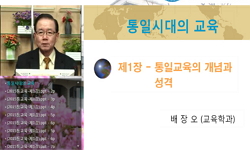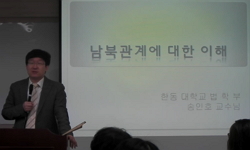과도기 정의(transitional justice)란, 권위주의나 전체주의 체제의 국가가 민주체제로 전환하거나 내전이나 분쟁이 종식되고 새로운 체제가 들어설 경우, 과거 체제 하에서 또는 내전이나 분쟁 ...
http://chineseinput.net/에서 pinyin(병음)방식으로 중국어를 변환할 수 있습니다.
변환된 중국어를 복사하여 사용하시면 됩니다.
- 中文 을 입력하시려면 zhongwen을 입력하시고 space를누르시면됩니다.
- 北京 을 입력하시려면 beijing을 입력하시고 space를 누르시면 됩니다.

과도기 정의(Transitional Justice)와 한반도 통일 = A Study on Transitional Justice in the Context of Reunified Korea
한글로보기https://www.riss.kr/link?id=A100858294
- 저자
- 발행기관
- 학술지명
- 권호사항
-
발행연도
2014
-
작성언어
Korean
- 주제어
-
등재정보
KCI등재
-
자료형태
학술저널
-
수록면
25-42(18쪽)
-
KCI 피인용횟수
9
- 제공처
-
0
상세조회 -
0
다운로드
부가정보
국문 초록 (Abstract)
과도기 정의(transitional justice)란, 권위주의나 전체주의 체제의 국가가 민주체제로 전환하거나 내전이나 분쟁이 종식되고 새로운 체제가 들어설 경우, 과거 체제 하에서 또는 내전이나 분쟁 중에 발생한 각종 인권유린이나 전쟁범죄 등을 어떻게 처리하여 관련국 및 그 국민이 항구적인 평화 및 화해·통합으로 나갈 수 있을지에 대한 방안을 고민하기 위해 고안된 개념이다. 남북의 평화적 통일을 헌법적 과제로 안고 있는 우리로서도 이러한 국제적인 활발한 논의들을 잘 분석하여 언젠가 다가올 한반도의 통일 후 상황에 대한 시사점을 도출할 필요가 있다. 본 논문에서는 과도기 정의 관련 국제적 논의 내용을 일반적으로 개관하고 이러한 내용이 한반도의 상황에 어떻게 적용될 수 있으며 또 어떻게 적용되어야 하는지에 대한 기본적 분석 및 논의방향을 제공한다. 구체적으로, 형사처벌, 진실 규명(진실화해위원회), 피해자 구제, 기관 개혁(공직참여 배제범위 설정 포함) 차원에서 일반적 내용 소개 및 한반도 상황에의 적용을 시도하며, 이러한 과도기 정의 장치들이 어떻게 조화롭고 균형 있게 적용되어야 한반도에서 실질적 통합이 더욱 촉진될 수 있을지 개괄적인 결론을 도출한다. 한반도 통일 후 어떠한 과도기 정의 방법론이 가장 적합한 지에 대해서는 기본적으로 정답이 있을 수 없으며, 그 당시의 구체적 상황에 맞춰 여러 형태를 적절히 배합하며 도출될 필요가 있다. 이 경우 국제범죄 등 심각한 인권침해행위에 대해서는 형사처벌을 적극 추진해야 하겠지만, 기타 상대적으로 경미한 침해행위에 대해서는 진실규명 등을 통해 보다 큰 맥락에서의 화해와 통합을 추진하는 방안들이 진지하게 고민되어야 할 것이다.
다국어 초록 (Multilingual Abstract)
Transitional justice is a range of approaches that States may use to address past human rights violations so that States and their people can move forward towards sustainable peace and reconciliation. Countries in transition, for example from autocrat...
Transitional justice is a range of approaches that States may use to address past human rights violations so that States and their people can move forward towards sustainable peace and reconciliation. Countries in transition, for example from autocratic rule to democracy or from armed conflict to peace, usually face a legacy of massive human rights abuses that cannot be fully dealt with by existing systems. In such situations, transitional justice mechanisms, judicial and non-judicial, can be utilised properly, instead of just erasing the past. They include not only criminal prosecutions, but truth-seeking (truth and reconciliation commission), reparations to victims and institutional reforms (including vetting or lustration) as well. The concept and mechanisms of transitional justice may also be applied to the Korean peninsula in the post-reunification context. Even after two Koreas finally achieve their long-awaited political unification sometime in the future, there will be more important and difficult tasks of achieving substantial integration between longtime divided societies and peoples. No one knows when the national dream will come true and what type of unification will occur, whether a progressive unification on a consensual basis, a sudden but peaceful absorption like the German case, or a unification resulting from armed conflicts(contingency or full-scale war). In any scenario, how to utilise and apply transitional justice concept and how to balance among transitional justice mechanisms could be one of the key policy challenges to face for a more successful and substantial reunification on the Korean peninsula. The process of transitional justice is really dynamic since several mechanisms can operate simultaneously. How to balance between those approaches, in particular between criminal prosecutions and truth-seeking/reconciliation, or between pursuing justice and facilitating national integration/unity, will depend on the actual situation surrounding the prospective unified Korea. If people`s general sentiment permits, prosecutions may be limited to severe international crimes such as crimes against humanity. Instead, the role of a truth and reconciliation commission and the effect of amnesty need to be given a serious consideration. Also, a database of human rights violations can be (more properly) used as a source of reparations to victims and determination of eligibility for public officials, in addition to as evidence for criminal punishment. No one can predict the future of the Korean peninsula. However, considering the current dynamics within and surrounding the Korean peninsula, more detailed research and careful examination on the applicability of transitional justice to the Korean unification is clearly necessary.
참고문헌 (Reference)
1 최철영, "한ㆍ일과거사 청산과 이행기 정의(transitional justice) 개념의 적용" 법학연구소 23 (23): 237-261, 2011
2 법무부, "통일독일의 구동독 체제불법청산 개관" 191 : 334-338, 1995
3 신의기, "통일대비 북한범죄자 처리방안에 관한 연구" 한국형사정책연구원 2009
4 최진욱, "통일 진입과정에서의 북한 재건 방향" 통일연구원 2011
5 이효원, "통일 이후 북한의 체제불법에 대한 극복방안" 법학연구소 51 (51): 83-121, 2010
6 김하중, "체제불법 청산방안에 대한 헌법적 고찰 : 구 동독과 북한의 체제불법을 중심으로" 고려대학교 대학원 2008
7 이재승, "이행기의 정의" 법과사회이론학회 22 : 47-74, 2002
8 김수암, "유엔 조사위원회(COI) 운영 사례 연구" 통일연구원 2013
9 조정현, "유엔 북한인권 조사위원회(COI) 보고서 분석 및 평가" 국립외교원 외교안보연구소 2014
10 염돈재, "올바른 통일준비를 위한 독일통일의 과정과 교훈" 평화문제연구소 81-84, 2010
1 최철영, "한ㆍ일과거사 청산과 이행기 정의(transitional justice) 개념의 적용" 법학연구소 23 (23): 237-261, 2011
2 법무부, "통일독일의 구동독 체제불법청산 개관" 191 : 334-338, 1995
3 신의기, "통일대비 북한범죄자 처리방안에 관한 연구" 한국형사정책연구원 2009
4 최진욱, "통일 진입과정에서의 북한 재건 방향" 통일연구원 2011
5 이효원, "통일 이후 북한의 체제불법에 대한 극복방안" 법학연구소 51 (51): 83-121, 2010
6 김하중, "체제불법 청산방안에 대한 헌법적 고찰 : 구 동독과 북한의 체제불법을 중심으로" 고려대학교 대학원 2008
7 이재승, "이행기의 정의" 법과사회이론학회 22 : 47-74, 2002
8 김수암, "유엔 조사위원회(COI) 운영 사례 연구" 통일연구원 2013
9 조정현, "유엔 북한인권 조사위원회(COI) 보고서 분석 및 평가" 국립외교원 외교안보연구소 2014
10 염돈재, "올바른 통일준비를 위한 독일통일의 과정과 교훈" 평화문제연구소 81-84, 2010
11 "연합뉴스"
12 "연합뉴스"
13 최철영, "식민지 청산과 이행기의 정의: 동티모르의 사례" 민주주의법학연구회 (45) : 47-79, 2011
14 한동호, "북한인권백서 2014" 통일연구원 2014
15 법무부, "동구제국 체제개혁 개관: 법제ㆍ사법개혁과 체제불법청산" 204 : 1996
16 법무부, "독일통일 10년의 법적고찰" 234 : 46-49, 2000
17 국가안전기획부, "독일 통일모델과 통독후유증"
18 이재승, "국가범죄: 한국 현대사를 관통하는 국가범죄와 그 법적 청산의 기록" 도서출판 앨피 38-57, 2010
19 오승진, "과도적 정의의 실현에 있어서 진실화해위원회의 역할과 한계" 2012
20 박기갑, "과도적 정의와 국제인권 관련 규범" 국제법평론회 (38) : 89-115, 2013
21 이재승, "과거청산과 인권" 민주주의법학연구회 24 : 1-42, 2003
22 변창섭, "간부들, 통일 후 보복이 두려워 체제 붕괴 막으려 안간힘"
23 Marty Logan, "What is transitional justice?" OHCHR Nepal 2007
24 Andreas O'Shea, "Truth and Reconciliation Commissions"
25 Gareth Evans, "The Responsibility to Protect: Ending Mass Atrocity Crimes Once and For All" The Brookings Institution 2008
26 Darryl Robinson, "Serving the Interests of Justice: Amnesties, Truth Commissions and the International Criminal Court" 14 (14): 2003
27 "Report of the detailed findings of the commission of inquiry on human rights in the Democratic People's Republic of Korea" 2014
28 "Report of the commission of inquiry on human rights in the Democratic People's Republic of Korea" 2014
29 UN, "Report of the Secretary-General: The rule of law and transitional justice in conflict and post-conflict societies" 2004
30 UN, "Report of the Secretary-General: The rule of law and transitional justice in conflict and post-conflict societies" 2011
31 Casare PR Romano, "Mixed Criminal Tribunals (Sierra Leone, East Timor, Kosovo, Cambodia)"
32 "ICC 로마규정 제12조 및 제13조"
33 "ICC 로마규정 제11조"
34 Manfred Nowak, U.N, "Convention on Civil and Political Rights: CCPR Commentary" N.P. Engel Publisher 367-368, 2005
35 "Assistant Professor of International Law, Korea National Diplomatic Academy (KNDA)"
동일학술지(권/호) 다른 논문
-
- 서울국제법연구원
- 정인섭(In Seop Chung)
- 2014
- KCI등재
-
- 서울국제법연구원
- 백범석(Buhm Suk Baek)
- 2014
- KCI등재
-
- 서울국제법연구원
- 정민정(Min Jung Chung)
- 2014
- KCI등재
-
UN 안전보장이사회 제재결의의 국내적 이행에 관한 한국의 법체계와 실행
- 서울국제법연구원
- 백상미(Sang Me Baek)
- 2014
- KCI등재
분석정보
인용정보 인용지수 설명보기
학술지 이력
| 연월일 | 이력구분 | 이력상세 | 등재구분 |
|---|---|---|---|
| 2023 | 평가예정 | 재인증평가 신청대상 (재인증) | |
| 2020-03-27 | 학회명변경 | 영문명 : 미등록 -> Seoul International Law Academy |  |
| 2020-01-01 | 평가 | 등재학술지 선정 (재인증) |  |
| 2019-12-01 | 평가 | 등재후보로 하락 (계속평가) |  |
| 2019-04-16 | 학술지명변경 | 외국어명 : The Seoul International Academy -> Seoul International Law Journal |  |
| 2016-01-01 | 평가 | 등재학술지 유지 (계속평가) |  |
| 2012-01-01 | 평가 | 등재 1차 FAIL (등재유지) |  |
| 2009-01-01 | 평가 | 등재학술지 선정 (등재후보2차) |  |
| 2008-01-01 | 평가 | 등재후보 1차 PASS (등재후보1차) |  |
| 2006-01-01 | 평가 | 등재후보학술지 선정 (신규평가) |  |
학술지 인용정보
| 기준연도 | WOS-KCI 통합IF(2년) | KCIF(2년) | KCIF(3년) |
|---|---|---|---|
| 2016 | 0.78 | 0.78 | 0.64 |
| KCIF(4년) | KCIF(5년) | 중심성지수(3년) | 즉시성지수 |
| 0.55 | 0.57 | 0.996 | 0.2 |





 DBpia
DBpia






